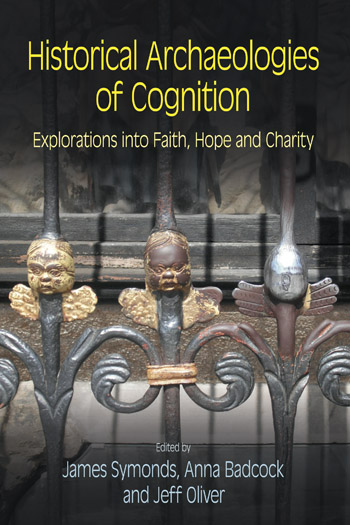Index
Historical Archaeologies of Cognition - Explorations into Faith, Hope and Charity - James Symonds
James Symonds [+]
University of Amsterdam
Anna Badcock [+]
ArcHeritage
Jeff Oliver [+]
University of Aberdeen
View Website
Description
This collection of essays draws inspiration from the late James Deetz’s In Small Things Forgotten (1977). Deetz’s seminal work broke new ground by using structuralist theory to show how artefacts reflected the ‘worldviews’ or idealogies of their makers and users, and claimed that the American colonial world had been structured according to a British intellectual blueprint, the so-called ‘Georgian Order’. His central premise, that the systematic study of mundane material objects such as tombstones, architecture, and furniture, can render palpable the intangible aspects of human cognition and belief systems, has become a fundamental tenet of modern historical archaeology. Drawing on James Deetz’s insight that everyday objects from the recent past are ‘freighted with social significance’ and that material culture operates alongside language as a system of communication, this book unravels specific cultural moments in well-documented historical periods across the modern world. These studies range from the early 17th century to the late 20th century and employ theory from archaeology and anthropology to elucidate the complex links between human thought and action. The authors, drawn from North America, Europe, and Australia, make a significant contribution to archaeological knowledge, moving beyond simple materialities to create human stories that transcend purely descriptive show-and-tell accounts of archaeological sites and allow taken-for-granted constructions of race, class and gender to be probed and challenged.






